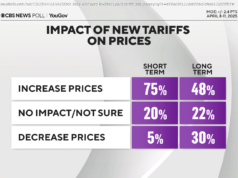The journalism biz had ink on its face after comedian Michelle Wolf’s hard-to-watch attack on Sarah Huckabee Sanders at the White House Correspondents’…
The journalism biz had ink on its face after comedian Michelle Wolf’s hard-to-watch attack on Sarah Huckabee Sanders at the White House Correspondents’ Dinner, but there was no apology forthcoming from the organizer.
Margaret Talev, president of the White House Correspondents’ Association, refused Sunday to second-guess her speaker selection after Ms. Wolf reamed the White House press secretary for “lies” and took veiled shots at her appearance.
“What I told you is what I have already told Sarah Sanders, that I speak for myself and the association, and that my interest is in the spirit of unity and in the spirit of serious journalism,” said Ms. Talev on CNN’s “Reliable Sources.”
Did Ms. Wolf’s anti-Sanders screed promote unity? Maybe not, acknowledged Ms. Talev.
“My interest overwhelmingly was in unifying the country, and I understand that we may have fallen a little bit short on that goal,” said Ms. Talev, Bloomberg’s senior White House reporter. “I hope everyone will allow us to continue to work toward that goal.”
Her comments appeared jarringly out of touch with the reaction to Ms. Wolf’s routine from conservatives, administration officials and even leading journalists, who spent Sunday evaluating the damage done to the industry at Saturday’s televised dinner.
Howard Kurtz, host of Fox’s “Media Buzz,” said Sunday he had “never seen a performance like that,” adding that “she was not only nasty but she was dropping f-bombs on live television.”
The comedian herself, a contributor to “The Daily Show,” was unrepentant, insisting her Sanders jokes were “about her despicable behavior,” not her looks.
“The question now is whether comedian Michelle Wolf went too far and maybe damaged the journalism profession,” said CNN host Brian Stelter.
A number of prominent media figures—including Ed Henry of Fox News, MSNBC’s Andrea Mitchell and Mika Brzezinski, and the [U. K.] Guardian’s David Martosko—called for the WHCA to apologize.
“I think it’s long past time, hours later, for the association to put out a simple, one-sentence statement saying, ‘We do not agree with this,’ these personal, vile attacks on Sarah Huckabee Sanders, who is a good person,” said Mr. Henry on “Media Buzz.”
The former WHCA president added, “We invited her to the dinner, we should have treated her with respect.”
The Associated Press’s Meg Kinnard tweeted that the dinner “made the chasm between journalists and those who don’t trust us, even wider,” while Washington Times correspondent Dave Boyer said Ms. Sanders “showed a lot of class last night in the face of rude, cruel comments.”
“We should be able to celebrate the 1st Amendment without subjecting our guests to personal insults,” he tweeted.
Margaret Sullivan, columnist for the Washington Post, upped the ante by calling on journalists to cancel the dinner entirely in a Sunday op-ed headlined, “For the sake of journalism, stop the annual schmoozefest.”
She argued that the dinner “plays right into the hands of President Trump’s press-bashing,” a sentiment echoed by Jonah Goldberg, who said the event has become “an East Coast version of the Oscars.”
“As someone who has dinged President Trump often for his narcissism, the institutional narcissism that was on display last night from the correspondents’ dinner I think was a gift to President Trump,” said Mr. Goldberg on CBS’s “Face the Nation.” “The crudeness toward Sarah Huckabee Sanders was a gift to the White House.”
The outrage over Ms. Wolf’s routine comes with the public’s trust in the press at what may be an all-time low amid Mr. Trump’s ongoing feud with the media.
A Quinnipiac University poll released last month found that 22 percent of those surveyed agreed that the press was the “enemy of the people,” as Mr. Trump has said, a figure that jumped to 51 percent among Republicans.
“We’ve had awkward dinners before, no question, but this is a different time,” said USA Today’s Susan Page on “Face the Nation.”
A composed but unsmiling Ms. Sanders watched from the dais a few feet away as Ms. Wolf let loose on her and a number of other administration officials, although her anti-Sanders jabs came across as the most offensive.
“I’m never really sure what to call Sarah Huckabee Sanders. Is it Sarah Sanders? Is it Sarah Huckabee Sanders? Is it cousin Huckabee? Is it anti-Huckabee Sanders?” asked Ms. Wolf. “What’s ‘uncle Tom’ but for white women who disappoint other white women? Oh, I know, aunt [Ann] Coulter.”
At one point she told Ms. Sanders that “I love you as aunt Lydia in ‘The Handmaid’s Tale,’” referring to the frumpy, scowling older woman who indoctrinates the handmaids in the Hulu series.
“I actually really like Sarah, I think she’s really resourceful. Like she burns facts and then uses that ash to create a perfect smoky eye,” said Ms. Wolf. “Like maybe she’s born with it, maybe it’s lies.”
The episode may well have set back press relations with the White House. While Mr. Trump pointedly was not there, headlining a rally instead in Michigan, several administration officials did attend, breaking last year’s boycott.
Not everyone in the press corps was on the same page. A number of White House reporters defended Ms. Wolf’s routine, saying critics were making too much of it.
“I think the White House Correspondents’ Association is taking sort of undue blame for this,” said Politico correspondent Eliana Johnson on “Reliable Sources.” “The country is polarized, and the dinner I think showcases that.”
Comedian Don Imus drew outrage over his skewering of President Bill Clinton at the 1996 dinner. Ten years later, Stephen Colbert delivered a searing roasting of President George W. Bush.
Jamelle Bouie, chief political correspondent for Slate magazine, was among those who called the outrage ironic, given Mr. Trump’s putdowns and vulgarities, adding that “the press’s problems of legitimacy with the public goes back decades.”
“To think something like this dinner encapsulates or represents the problem, I don’t think it’s quite true,” said Mr.
Домой
United States
USA — mix WHCA refuses to apologize for ‘vile’ attacks by comedian on Sarah Sanders






